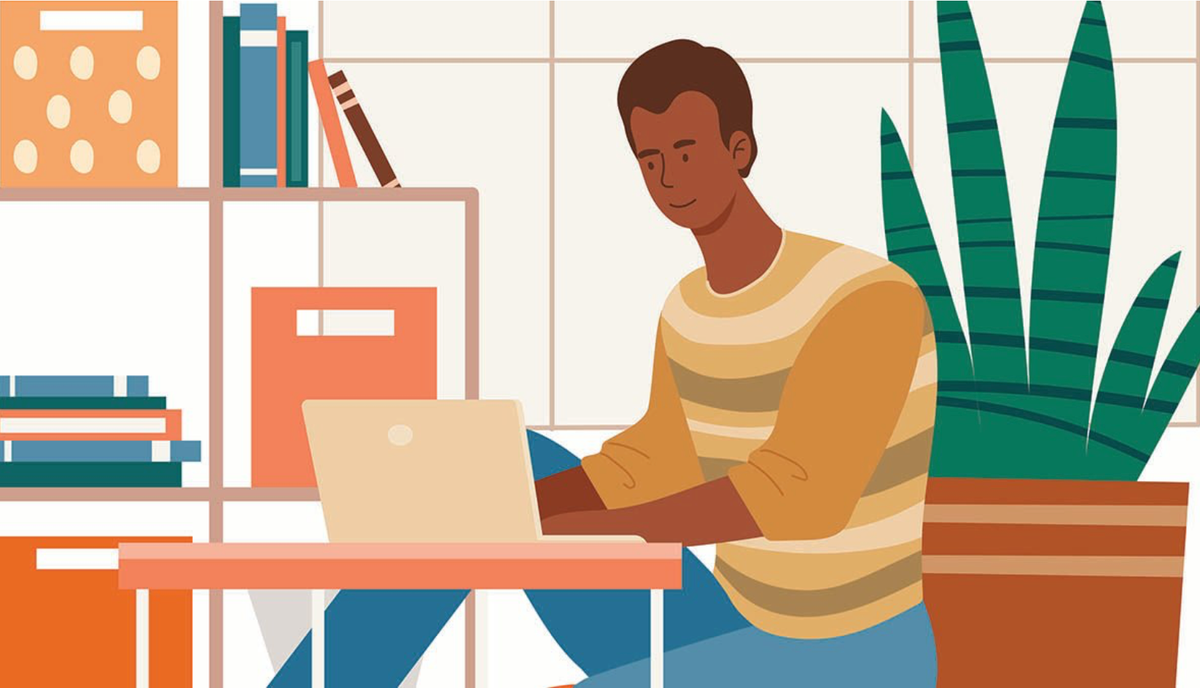Can we be happy just living online?

Nothing like grappling with the big ideas on a Monday morning eh? Blame Apple. You see, if you own an iPhone - this isn't a dig against Android, I just don't know if they offer the same alerts - on Mondays, it sends you a notification about how much 'screen time' you had in the last week. Mine said I spend two hours 36 minutes on my smartphone every day - which is 23% higher than it was last week.
Panicked I go to my Mac and ask it the same question. "You average 8 hours a day screen time". I am in front of a screen, on average 10 hours and 36 minutes every day.
Ironically, and inevitably I ask Google what this means. I stumble upon Virginia Hefferman's essay in 1843 Magazine, The internet, mon amour. Here she grapples with how coronavirus has forced to us to spend more time online, and what that might mean for our experience of the world when we go back out there.
A rough transition 🤢
"Offline, my family seems to want stuff so densely material that it verges on caricature," says Heffernan. "It’s everywhere: fungus that thrives on the countertop in the form of sourdough yeast; silty, shoe-wrecking mud from the banks of the creek; beer cans studded with bbs from a gun we found in the garage.
"The pure abstraction and infinite possibilities of online existence still suit and excite me, and returning to material things and the obligations of creaturely existence can feel like a comedown," she says.
That got me thinking. The world we live in is unpredictable, surprising, boring, funny, and sad. The online world however, is very different. Lines of code want you to only see things you have shown an interest in before. Whether it's the news you see on Apple or Google news, your social media feeds or the cookies that keep showing up on websites reminding you of that jacket you looked at three weeks ago.
The internet, rightly or wrongly is designed to be a familiar place to you. Comforting, even. The physical world, isn't. There isn't anything actively managing your experience. Sure, you can choose where to live, where to work, and what to eat. But those choices aren't a guarantee of the experience you want. To Heffernan's point about switching between one world and another, it feels like a comedown.
Heffernan finishes the article by finding solace in the contradiction. Here at The Brink however, we want more concrete answers. Thankfully there's a psychologist out there that's been looking at this very thing.
Russell W Belk, a psychologist at York University in Canada, says there is no difference between our online and offline worlds from a psychological perspective. "These dematerialised digital artifacts and our physical possessions - they both help us express important aspects of our identity to others and these identity claims provide the core ingredients of our digital reputation," he told the Guardian.
Studies have concluded that while the internet provides escapism from everyday life, it mostly mimics it. It comes down to shifting from one world to the other. How often do you do it, and can we be more disciplined about when we're immersed in one, and when we escape into another.
Do you have a digital routine? Let me know!





